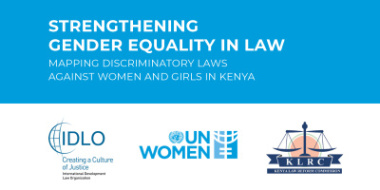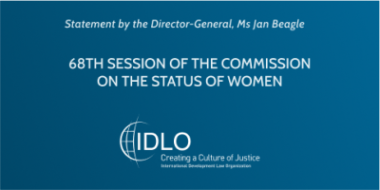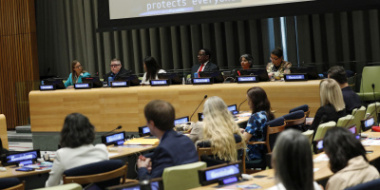Launch of CEDAW General Recommendation No. 35 on Gender-based Violence Against Women
STATEMENT OF THE INTERNATIONAL DEVELOPMENT LAW ORGANIZATION
Launch of CEDAW General Recommendation No. 35 on Gender-based Violence Against Women, updating General Recommendation No. 19
November 14, 2017
Geneva, Switzerland














